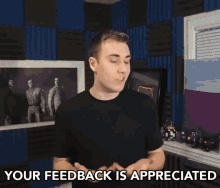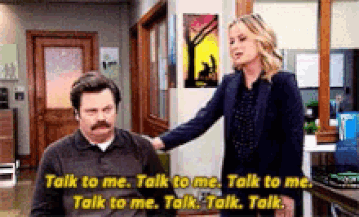|
This post is for PitchWars Mentors as they sort through potential mentees and do a little internet searching to see what we’re all like. I’ve never been a PitchWars mentee (or one in other such editing contests), but I thought I’d assemble a sense of what I’d be like to work with in this process. I take feedback well. Or at least my critique group hasn’t complained about me, yet. I’ve been attending weekly meetings since March 2017 where I’ve gotten feedback on ~1500 words at a time on various projects. We meet remotely now, so I’m not out of practice! My process is to accept all comments, read them, then let it marinate for at least 24 hours before acting on anything. I love feedback that sparks a new idea! I also know when to disagree and not take a note. Overall, this isn’t my first time getting critiqued, so I won’t take anything personally and I understand all feedback is to better the story. I like communication. I will inevitably send you questions about your critiques/comments. Especially asking you why you felt a certain way about something. If I get stuck on a fix, you can also expect me to ask for a brainstorming session. I tend to match communication styles to whoever I’m talking to. If you send gifs and jokes, so will I! I work East Coast hours on the West Coast. Meaning that I’m free by 2pm and have plenty of time each day to write and edit. If you looked at my submission package and wondered if we’d have enough time to do what you think needs to be done, hopefully my schedule shows you I can make it work. I have a vision for what I want to accomplish, but I also want to hear yours. While I have some goals in mind, which we can discuss privately, I am open to whatever you think needs attention too. This is not the first novel I’ve finished, and with no pub credits yet, I’m clearly missing something. I have a million cat pictures. My cats are bald, which is not everyone’s cup of tea. If you don’t want bald cat photos, I have no other cat photos to offer. My boys are below! Hopefully, you think we'd be a good fit and you love my submission and think we can tackle it together in the allotted time. I hope this post helped you get to know we as a potential mentee!
P.S. To anyone who comes across this post later: I claim no rights to any of the gifs.
0 Comments
The first daffodils of spring. They didn't wonder if they were ready to bloom, they just did it. Photo by Kate Ota 2019. One of the hardest parts of writing with the intention to publish is knowing when your work is ready to be sent out. Whether that’s to agents, publishers, or to readers as a self-published book is up to you. Anyone about to endeavor on that journey, no matter which path, always asks the same question: is this ready? Here are some ways you can determine the answer.
You Read It Through and Only Make Minor Changes Periods, commas, a semi-colon, deleting that semi-colon, minor spelling errors. These tiny changes are a sign you’re done editing. No book is perfect, and if you’re going the traditional publishing route, many more eyes will be on this, so don’t stress that comma. If you’re self-publishing, you can consider hiring a professional copy-editor to catch anything else you don’t in this stage. You’ve Fixed Problems Noted by Your Beta Readers Especially if they only offered minor suggestions, or you decided not to take their ideas of larger changes. Once you know other people have seen it and overall enjoyed it, you can be more confident sending it out. You Can’t Think of Anything Else to Change, but You Don’t Think It’s Good Enough If you and your beta readers don’t have more ideas for how to improve the book, may I suggest it’s because there’s nothing that needs improving? This state of mind is just you not feeling confident enough in your work. Take a deep breath, tell yourself it’s great, and move forward. If traditionally publishing, your future agent or editor may have suggestions you like and incorporate—but maybe they’ll like it just the way it is. You Want to Say it's Ready, but Feel Like You Need to Keep Editing for X Amount of Time or You’re Not a “Real Writer” This is called imposter syndrome. Everyone gets it at some point, and it’s the worst. There is no standard amount of time for you to take on edits as a writer. Yes, there are some general sentiments out there, like it should probably take you more than a few days, and anything over ten years raises questions. But honestly, any timeline is fine. Got a full-time job and only write for thirty minutes at night on a good day? Gonna take you a while. Furloughed from work with no kids but also financial stability and therefore have all the time in the world to write right now? You’ll probably move faster than you expect. Don’t feel like you have to toil and lament in order to be “real.” You wrote words, therefore you’re a real writer. Published or not. Take the time you need to edit, and if you’re done, you’re done. You Secretly Know You’re Done Editing, but You’re Scared of the Next Step There is no pressure to get published. Scared to share your work? Don’t. You don’t need to publish to be happy. If you finish your edits, you can walk away from the project. If you want to be published, you’ll have to swallow your fears and get some emotional-armor ready. Yes, publishing is full of rejections. From agents, from editors, from reviewers, from readers. It’s a lot of work no matter which path you take and thinking you could fail at something you’ve been dreaming of is scary. You’ll automatically fail by never trying. So, don’t sit in the editing stage, claiming to be fiddling with this or that in order to put off the inevitable. Go forward and query. Go forward and submit. Go forward and figure out self-publishing. Whatever it is you’ll do next, go do it. What other ways can you tell you’re ready to move on from the editing stages? Did these help you decide to take the next steps? Let’s discuss in the comments! Anxious about querying/Pitch Wars? Take a deep breath, look at these flowers, and then read my blog post below. Photo by Kate Ota, Stuttgart Germany, 2013. With Pitch Wars just around the corner, Twitter is flooded with people asking for help writing their queries. Queries are a really tough format because they need to be short, include enough information to make sense, be interesting, and have voice. It’s no easy feat, but as someone who has queried two novels in the past and had some success with requests, I can offer basic tips to get you started.
Format and Content If an agent’s website (or for Pitch Wars, a mentor’s website) doesn’t specifically ask for a certain format, the following is what’s generally expected: Dear [Agent, be specific with their name here! For Pitch Wars: Dear Mentors], Plot/character paragraphs (no more than ~3 paragraphs): This must include: Who is the main character? What do they want? What choice must they make/problem must they solve? What are the stakes? Generally, don’t go beyond the 20% mark of the novel in terms of content. Metadata paragraph: [Title] is a [age group] [genre], complete at [word count]. It is [comparison title 1] meets [comparison title 2] and would appeal to fans of [comparison title 3, ideally the most recently published]. Bio paragraph: Tell the agent about yourself. Do you have publication credits, a popular website, a degree in writing or English? What’s your day job? Does the day job relate to the content of the novel? (It doesn’t need to!) Do you spend your free time doing anything else besides writing? Do you have cute pets? Don’t go overboard here, two sentences is enough. If you have a ton of pub credits (like a bunch of short stories in anthologies or magazines) pick three which had the widest audience or were most recent. Thank you for your time and consideration, [Your name] Total length: for Pitch Wars it’s 250 words. For agents in general, don’t go much more than that. 300 would be the max. Some agents like to know why you chose them. This information will not make sense in a Pitch Wars query, since you’re sending to all your mentors at once. However, for an agent, any specifics you want to include should go first, and should be to the point. Don’t say “because your website says you rep my genre.” They know they rep your genre. If you include personalization, make it specific. “You rep my favorite book, X, whose female lead has magic powers like my character, Y.” “You tweeted that you’d love to see more witches, which are abundant in my novel, Z.” Common Query Questions What’s the right word count for my genre? Check out this article from Writer's Digest. Can I see some real examples? Check out Query Shark, the website by agent Janet Reid. Read as many posts as you can! What if my novel has multiple POVs? You can mention it has multiple POVs in the metadata paragraph. You can either introduce some of your POV characters with their own short paragraphs or explain one central plot and character. If there are more than three POVs, focus on one central character because they query will not have enough space for everybody. I don’t have any publication credits, do I say that? You don’t need to. You can either not mention it at all, which the agent (or mentor) will understand means you don’t have any credits or you can phrase it as “this would be my debut novel.” What if I self-published before this? If you self-published the story you’re querying, it doesn’t qualify for Pitch Wars. Many agents also don’t want to work on a previously self-published work. If you are querying a different project from what you previously self-published, that’s fine. Some agents want to know how that self-pub fared; some don’t care. Some will hold bad sales against you. Usually their website offers insight into their self-pub-past preferences. How do I find comparison titles? Comp titles are the hardest part for me. I generally go for content/tone comparisons because those give the most information about what the reader is going to get. You can also have comparisons for style, if you have an unusual format (like verse or complex timelines), or specific elements (it has the world building of X with the quirky humor of Y). Finding specific titles is a matter of searching and reading. In the Before Times, you could ask a bookseller or librarian about new books in your genre with elements you have in common. Nowadays, it’s up to good ol’ Google. Amazon has the most up to date information about best sellers in obscure genres, but don’t compare to mega best sellers. If you say it will appeal to fans of Harry Potter, Twilight, and The Bible, no one will believe you. On the other hand, an obscure comparison will be meaningless. Find a happy medium with comp titles in your age range and genre: It has rich world building like K.A. Doore’s The Perfect Assassin and would be found on the shelf with Rebecca Roanhorse’s Trail of Lightning. Choose titles that have sold reasonably well and came out in the last 2-3 years. You can push that for an older comp if it’s absolutely perfect, but try to keep it to one old comp and the rest are new. What if I use a pen name? If you have a pen name, you can sign your query with that, but an agent will eventually need to know your legal name to sign with you. Make sure the name you sign with matches your email’s name. Can someone else query for me? I suppose they can, but I’ve never read anything from any agent that suggests they like that. Usually, they advise against it. If someone wants money to query for you, run away. Fast. Do I need to hire a professional editor before I query? No. And doubly no for Pitch Wars, editing is the name of the game. However, your manuscript should be as polished and clean as you can make it. I highly recommend joining critique groups to help with this, and beta and authenticity readers are also a huge help. However, paying a professional editor is not necessary. What if my project is the first in a series? This is tricky, you don’t want to gush about how you’ve written all 18 of a series before the first even sold. It scares agents. If it’s the first in a series, you would include in your metadata paragraph that is has series potential. If it is not in a series, the phrase to use is it’s a stand-alone. I have really intense world building, how do I fit that into the query? You can slide in hints of the world building, but you’ll have to save the complexities for the synopsis and the book itself. The query needs more about the main character and the plot than the world building. If the agent (or mentor) reads your query and can’t name the character, their want, their choice, and their stakes, they won’t care about the world building because they won’t know what happens. Do I say how it ends in the query? No. Generally, you only discuss content that’s in the first 20% or so of the novel. Act 1, if you’re into that structure. The stakes mentioned can hint at what would go wrong later, but you shouldn’t tell us if it actually goes that way. You do, however, discuss the ending in the synopsis. Synopses will be a separate post. I'll end by reminding you that no matter what you read, even if you read it here, whatever the agent's website says they want is the correct thing to send them. Follow their rules! They have a reason they want it their way, so just do it! Want help on your specific query? DM me on twitter and I can take a look. Have a question I didn’t cover? Write it in the comments and we’ll discuss! The purpose of voice is to stand out, like this flower against the fence. Photo by Kate Ota in Siegen, Germany 2013 One of the things agents always talk about on twitter or their websites is voice. They want it! Please send it! And you may be left thinking what is voice? How do you develop that in your writing? I have an explanation and tips for how to develop it yourself.
What is Voice? Voice is, at its core, unique and specific word choice, punctuation, and sentence structure. These elements play together to create a narrative style that is unlike what’s been done before, or is at least interesting to read. For example, pick up a random textbook. The goal of that book is not to entertain, it’s to clearly convey information. Therefore, the word choice is going to be generic, the sentence structures are likely going to be similar, and anyone in the entire world could have written it. Which is the point. A kid is reading that textbook and you don’t want them distracted by the writer’s interesting turn of phrase. Now look at, for example, The Lightning Thief, the first Percy Jackson novel by Rick Riordan. It’s written from the point of view of a twelve-year-old boy. That book oozes Percy’s voice. Interesting word choices, variable sentence structures, unique similes. That writing style won’t be found just anywhere, and that’s the point. Voice can be the voice of a character, the voice through the book as a whole (if there's more than one point of view), or the voice of an author across their works. I believe developing your voice as an author starts with the voices of your characters, which together will be the voice through the book. Below, I focus on tips for how to develop the voice of a character. Develop Your Voice Tip #1: Monologue as Your Character The best way I’ve found to fall into my character’s voices is to talk aloud as if I was them. If you’re feeling shy about your at-home audience, you can do this in the shower or write it down as it flows out of you. Whatever you do, don’t over think it. This monologue is not going in your project. It’s an exercise to help you explore. Take what you know about the character’s personality and extrapolate. The words they use will match their mood and education level, the sentence length will match their energy level, the punctuation will match their breath. Imagine how they’d discuss what they love, what they hate, where they live, and the people around them. Do this exercise as long as you’d like until you get a sense for how this character speaks. Then try writing narration and dialogue from them. Does that voice sound unique? It doesn’t need to be other-worldly or wild, it just needs to sound like it’s coming from an interesting person. Model it after an interesting person’s speech pattern, if that helps you. If you think any random character in your book would sound like the voice you just played with, try again. Tip #2: Decide which rules to break Voice often manifests best when the speaker breaks a few classic writing rules. The basic rules will get you to textbook or essay level writing, but to be more than a bone-dry info-dump, you need to play a little. One of my favorite rules to break is to use fragments. Sparingly in narration and frequently in dialogue. That was a fragment, by the way. Did you notice it had a little more humanity in it than a full sentence? Sounded more natural, more conversational. Hence why I use them more in dialogue than narration. Some characters will use a little more purple-prose in their word choice than others. For example, a professional artist will probably have more flowery word choice than a lawyer, who might be more direct. Some characters may even use more adverbs, run on sentences, or make grammatical mistakes (that last one is for dialogue only and should really be used sparingly, unless you want your readers to think you are the one making the mistakes.) It’s important to know the rules before you play fast and loose with them, and be sure you’re doing so on purpose. Tip #3: Once You Have It, Write It Down After discovering how your character monologues and which rules they tend to break, write down their specific quirks. This will help you remain consistent through your project. I have character consistency sheets that can help point you in the general direction of helpful things to write down. This can be before you’ve written your project or after you’ve finished your first draft, whichever you find most useful. Compare voices you’ve developed for each of your narrators, or for the speaking voices of various characters. If they were all in a scene together and all speaking, could you differentiate their dialogue through their voices alone? Ideally, yes! Did any of these tips help you develop the voice of your narrator or other characters? Do you have a favorite method for finding the voice of a novel? Let’s discuss in the comments! |
Archives
April 2024
Categories
All
|









 RSS Feed
RSS Feed